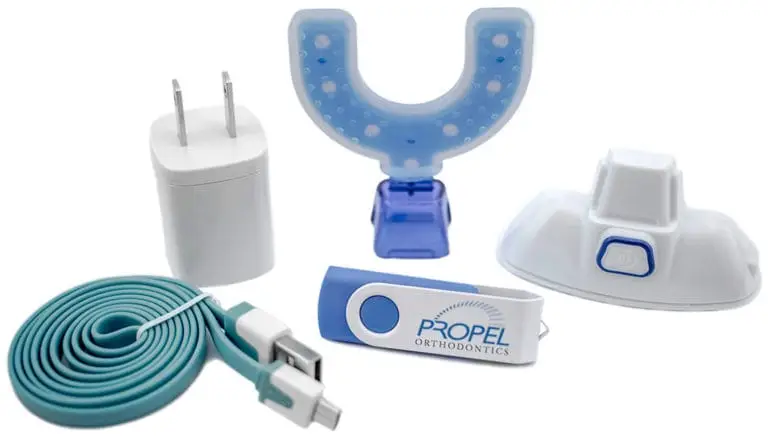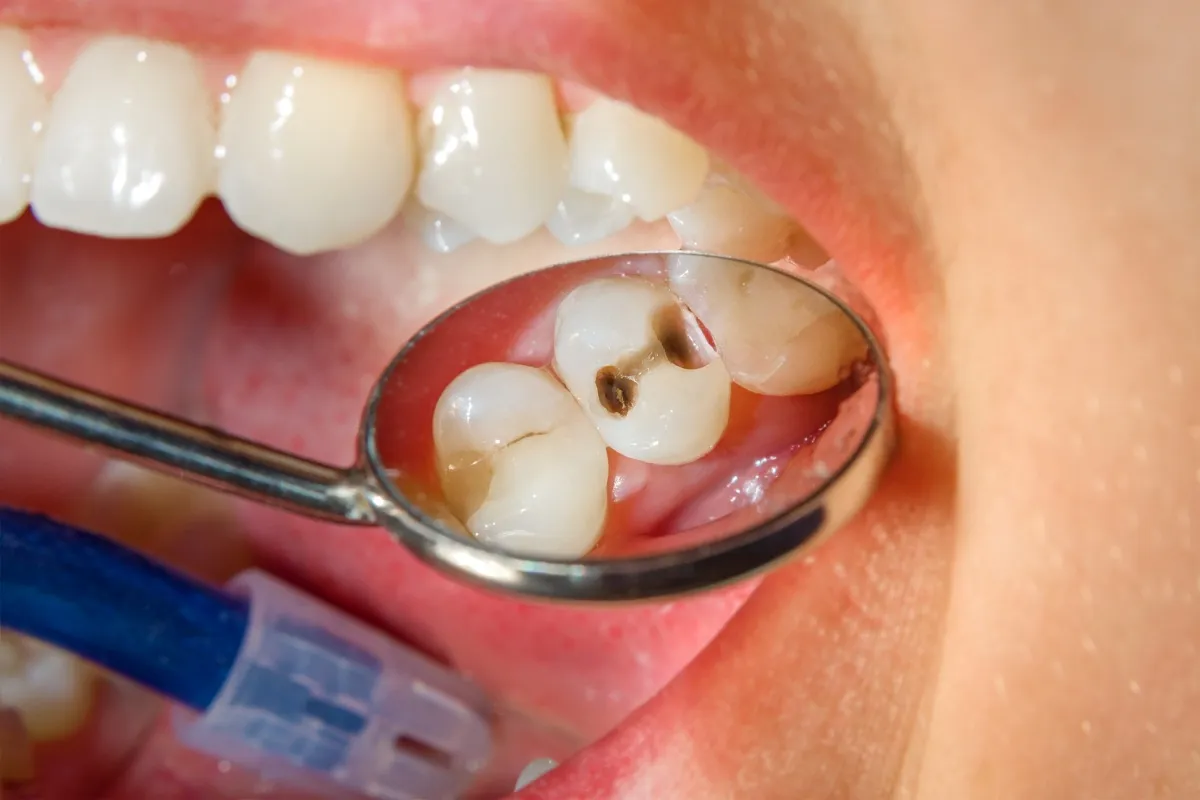
Accelerated Invisalign – Propel’s VPro5
Diamond Braces is happy to offer its patients VPro5 by Propel Invisalign, the latest tool that helps to straighten your teeth quicker.
Cavities are prevalent oral health issues. Around 57% of adolescents and 90% of adults aged 20 and older have cavities, as per CDC estimates. If you're in this group, you may be concerned about how it affects your treatment plan. Remember to brush your teeth regularly.
If you're concerned about cavities during Invisalign treatment, check out this comprehensive FAQ guide for insights on the topic.

Can You
While it's a common question, using aligners with an open cavity is not recommended. Just as you wouldn't want to drive a car with a broken exhaust, it's essential to address cavities before attempting to straighten your teeth.
The same logic applies to tooth movement; if there's even a single vulnerable opening, addressing it should be a top priority before attempting to move your teeth into alignment.
With Invisalign trays, you can still get your cavities treated, and they usually fit for 22 hours a day. In rare instances where they don't fit after cavity treatment, your doctor can request replacements at minimal or no extra cost.

Do Clear Aligners
No. Neither clear aligners , braces , or any other orthodontic treatment will directly cause cavities, nor will they directly exacerbate the risk of them happening. Clear aligners require additional oral hygiene diligence. While having a reliable tool is crucial, it's even more vital to responsibly brush and floss.
Cavities can be one problematic nuisance, with or without clear aligners. But that nuisance can be addressed by the “Three Cs”:
Tooth-colored aligners demand careful handling to preserve both your teeth and the aligners themselves. Maintain a strong oral hygiene routine and prioritize cleanliness.
Types of braces, including ceramic braces, lingual braces, and traditional metal braces, along with aligners, require careful attention to prevent plaque buildup, Gum-related disease, and cavity-causing decay. Even so, it would be a misnomer to say that aligners, or any orthodontic appliance for that matter, could directly cause or prevent cavities. At the end of the day, that responsibility falls on you and you alone.

What Happens
What if you develop a new cavity after starting clear aligner therapy? Ensure to address this concern by cleaning your aligners regularly, and consider the use of stainless steel tools for optimal oral hygiene.
If a cavity occurs in the middle of treatment, then that will be the first and foremost immediate priority to attend to. The first immediate priority will be having that cavity attended to with fillings or restorations.
If the filling or sealant drastically alters the shape of the tooth, then your orthodontist may need to perform a treatment revision, as the original fit may become compromised. If you need revised impressions or scans, then you should get that taken care of ASAP.

How to Avoid
You would go about avoiding cavities with clear aligners as you would without clear aligners. Keeping your smile healthy and happy is a continuous, ongoing, and lifelong struggle. Adhering to consistent care, compliance, and cleanliness (those 3 C’s we mentioned earlier) will go a long way toward curtailing your risk of developing cavities.
To maintain due oral hygiene diligence, you should:
Beyond those basic care routines, the following steps can also help you minimize the risk of developing cavities and tooth decay:
If you’ve tried everything and still have cavities with your aligners, it’s time to seek help. Consult your dentist and orthodontist. They can provide treatment options.
There might be a factor you haven’t discovered yet. Or, your cavity problem could indicate a deeper issue. Plastic aligners are great tools. They put pressure on your teeth to align them.
But they can also lead to cavities. So, it’s crucial to maintain good oral hygiene. Remember, your dental health is as important as having straight teeth.
In any case, it’s always good to ask for help and have access to antibacterial remedies you wouldn’t be able to access otherwise.